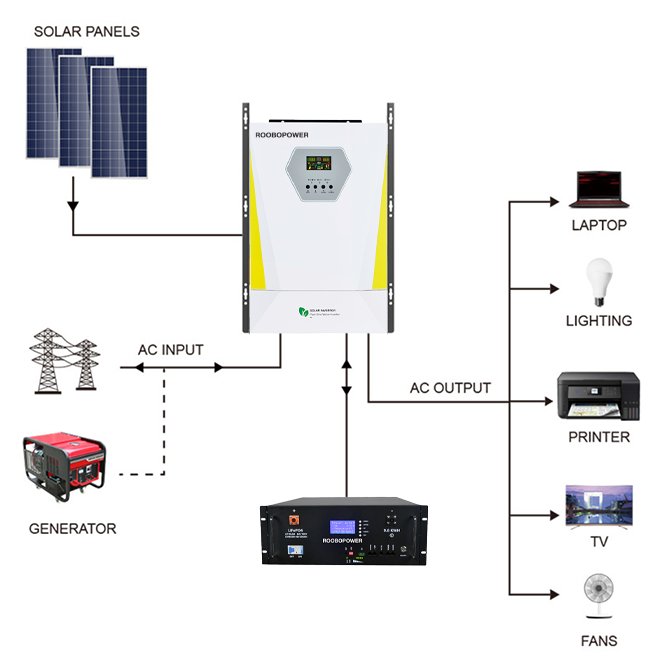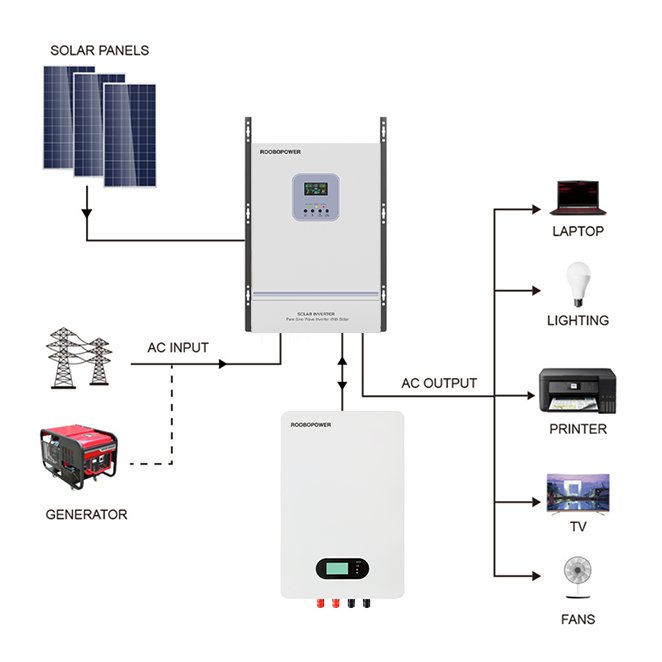
Everything You Need to Know About Residential Energy Storage

Residential energy storage is an innovative technology that has become increasingly popular in recent years. Energy storage systems (ESS) can store excess energy generated by renewable sources such as solar panels, which can be used later when the renewable energy source is not available. This technology can offer a range of benefits to homeowners, such as reducing electricity bills, improving energy independence, and providing backup power in case of outages.
An ESS is usually a component of a larger home energy management system that manages and optimizes energy coming from multiple sources. It is still useful to look at the details of what makes the ESS a critical part of such systems.
One of the main benefits of residential energy storage is cost savings. A homeowner with a solar panel system typically generates more electricity than can be used during the day. In some areas, this excess energy can be sold to the utility company. With an ESS, homeowners can store this excess energy and use it later when their solar panels are not generating power, such as at night or on cloudy days. This reduces the amount of electricity the homeowner needs to purchase from the grid, resulting in lower electricity bills.
Another benefit of residential energy storage is improved energy independence. With an ESS, homeowners can have access to their own stored energy, reducing their reliance on the grid. This can be particularly beneficial in areas with unreliable grid power or during power outages. In such cases, homeowners can rely on their stored energy to power their homes, ensuring that they are not left without power.
Residential energy storage can also provide backup power during power outages. In the event of a grid failure, homeowners can rely on their stored energy to power their homes, ensuring that they are not left without power. This can be especially beneficial for homeowners who live in areas prone to power outages, such as areas affected by hurricanes or other natural disasters.
In addition to the benefits of cost savings, improved energy independence, and backup power, residential energy storage can also help to reduce carbon emissions. By reducing the amount of electricity that homeowners need to purchase from the grid, they are also reducing the number of carbon emissions associated with generating electricity from fossil fuels. This can help to reduce the homeowner's carbon footprint and contribute to a more sustainable future.
Finally, residential energy storage can also increase the value of a home. With an ESS, homeowners can demonstrate their commitment to sustainable living and energy independence, which can make their homes more attractive to potential buyers. The cost savings associated with an ESS can be seen as a financial benefit, making a home with an ESS more valuable than a similar home without one.
In conclusion, residential energy storage offers a range of benefits to homeowners, including cost savings, improved energy independence, backup power during outages, reduced carbon emissions, and increased home value. With the increasing popularity of renewable energy sources and the need for sustainable living, it is likely that residential energy storage as a component of whole home energy management will become an increasingly important technology in the years to come.
What is a home energy management & storage system?
In the current market, the most common reason to store energy is to increase the productivity of solar power. It is quite convenient to install a home battery and store the extra solar power generated by solar panels (PV) for use at times when they aren’t as productive.
That's why home batteries are becoming more popular. People have started to realize that PV alone can’t get them energy independence. With home battery storage, they move closer to the promise.
A battery alone, however, is not a complete solution. An intelligent device is needed to manage the energy input and output, making the battery system safer and more robust.
Therefore, a home energy management & storage system is a household solution that connects with PV systems, batteries, the grid, generators, and even unique household loads, to balance energy sources to provide a stable household power supply.
Why do we need a home energy management & storage system?
Europe and North America have suffered multiple recent energy crises due to unpredictable political situations. It has been proven that being too dependent on resources from other countries could be unreliable. Being energy-independent has never been so critical.
From the view of a single family, the grid is becoming more unstable. With the energy supply getting unstable even more, it is reasonable to develop our own energy source. Solar energy has become a clear choice for home energy capture and production. It is clean and unlimited, and the technology is mature. Linking PV systems to energy management and storage makes sense.
Because of the advantages of linking PV and storage, many states have incentive programs that encourage residents to install home energy storage products to reduce electricity use demand. As time goes by, installing a home energy storage will become a common choice.
How can a home energy management & storage system help you?
a. Power outages
When there are power outages, whether it's a short brownout, or minutes-long blackout, or a long outage during extreme weather, a home energy storage can power the house using the stored energy. A typical use is to charge the battery with excess generated solar energy and then use it when needed.
b. Lower bills
Utility operators are moving to demand pricing, charging different rates in different periods. The stronger the demand, the higher the rates. With home energy storage, homeowners can charge the battery during low-rate periods and use the battery to power the house during high-rate periods.
c. Clean energy
With home energy storage, homeowners can reduce their dependence on the grid, so that fewer fossil fuels will be consumed. The solar power homeowners generate and use is completely clean energy, which improves the environment.




